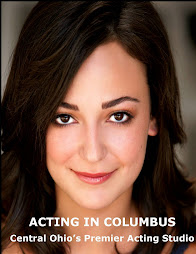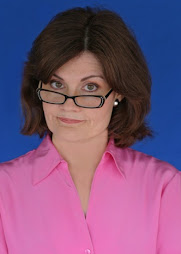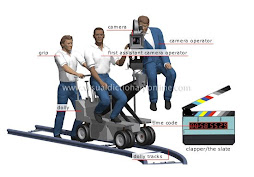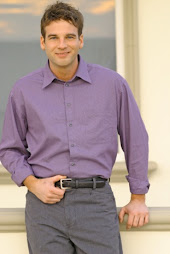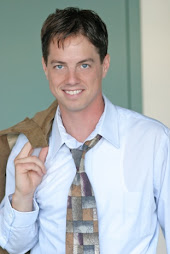
Often when I speak to actors I wonder if they really WANT to be successful working actors or if they just want to keep doing the same old, same old. What is it that keeps good talented actors from achieving success?? Not lack of talent or training. There’s plenty of that out there. Is it fear, poverty mentality or just the disbelief that a specific opportunity would really make a difference? I don’t believe its fear. If somebody really wants something they overcome the fear whether it’s asking someone out on a date or cutting off their long hair. And it’s not lack of funds. If someone really wants something, they’ll find the money. I’ve even had actors tell me that they couldn’t afford good headshots because they had booked a vacation to the Caribbean. Somehow they found the money for the trip but not for necessary marketing tools. Gee! Priorities were off there!
?
I think the reason that good actors are not successful is a perception that they have a lot of time and that opportunities are plentiful. PROCRASTINATION. “I’ll get a demo reel in six months when I save some money.” “I’ll get around to taking that class next year”. There’s an assumption that everything is on hold for them, that nothing ever changes. This is an incorrect assumption. It’s also the assumption of people who never get what they want out of life. Somehow they just miss the boat or the swan because they don’t make a COMMITMENT. Winners are able to make decisions FAST. They can see the “possibilities” in every opportunity so they get to that audition - they find a way! They COMMIT. And they have their lives set up so they can go forward. In short, they have their ducks in a row. How do you set up your life so that you can be a winner? What “DUCKS” did you need to get in a row?
1.
Create an office, a place where you can have a computer, database and marketing tools. You are your own one-person business. Keep consistent communication with the Industry. That means that every week you DO something to further your career: a class, a professional meeting, a self-submission, updating your tools, shooting a new demo reel. WORK daily at building a career.
If you’re broke and desperate when you go to an audition, you’ve already lost the job. Stay physically and mentally healthy-be happy and optimistic: daily exercise, eating properly, getting enough sleep. You may have the audition of a lifetime! Looking great for that audition and having energy to spare may make the difference between a major career break and unemployment. You can’t afford to blow it. You need to COMMIT to yourself to always be in top form.
2.
GET A MENTOR - someone to advise, encourage and inspire. Absolutely no successful person got there ALONE. Everyone needs encouragement and advice. Set goals for the short term and long term and a schedule to carry them out. This includes further training, networking with industry contacts, auditioning for everything you can, developing as an actor by getting into as many shows and performance groups as possible whether you’re paid or not. Revise your plan monthly. If a market or goal isn’t working change it or change your location, tools, approach. Get advice!OK!
3.
STOP All Unnecessary Activity And Expenses So You Can Focus On What You Want Now. As an actor, a major part of your job isn’t just to act, but to market yourself. This is how you get the auditions that get you work and how you convince casting directors that whatever level you’re currently at that as an actor you’re ready to move to the next one.
4.
Actors should get their headshots reproduced on collateral other than the standard 8x10 headshots. Having business cards with your headshot on them is extraordinarily convenient to an actor. So is having a postcard featuring one or more looks to send through the mail to refreshing casting directors as to who you are and your availability. Actors should be sure to send out regular mailings especially if you're appearing in a show or film project. Send Thank You Cards after an audition, when you book work or see a casting director/director for the first time.
5.
As an actor, it is important that you have a professional looking website. This means buying a domain name (so that you are http://www.YourName.com and not somerandomsite.com/yourname.html) and having a page that is easy to look at (this means no bells and whistles that may slow down older computers and no horrible things like blinking texts or sound files that play without the viewer specifically requesting them). An actor’s website should contain your headshot, resume, sizes, union status and some sort of contact information. Obviously, an actor should consider their personal safety and do not post an address or home phone number. Additionally actors should have the good sense to separate their web presence as a performer from other activities they engage in online. Do seriously consider putting photos from productions are in as well as the text of reviews on your website. If you do voiceover work or have a reel, these are also valuable things to include on your website.
6.
Finally, never forget that marketing yourself as an actor means always responding promptly and politely to any queries about your availability, skills and interest in a project. Additionally, actors should remember when leaving messages for casting folks who have asked them to call in, to be concise, specific and leave their phone number twice. Good luck!










